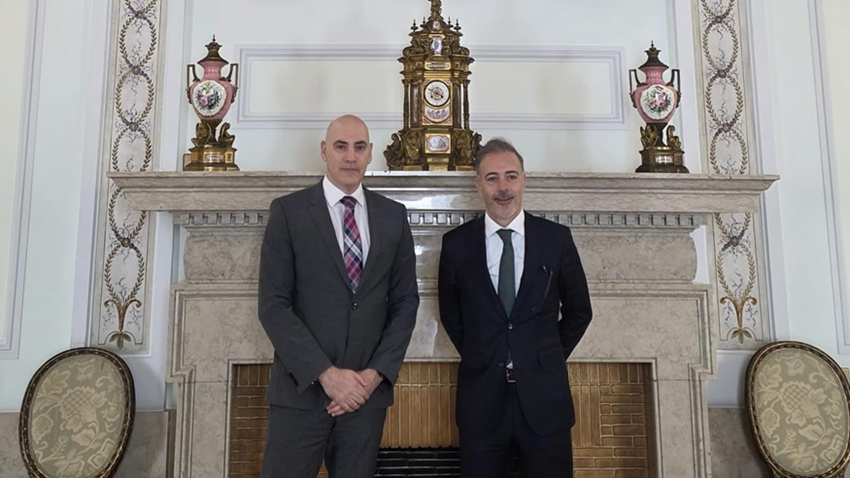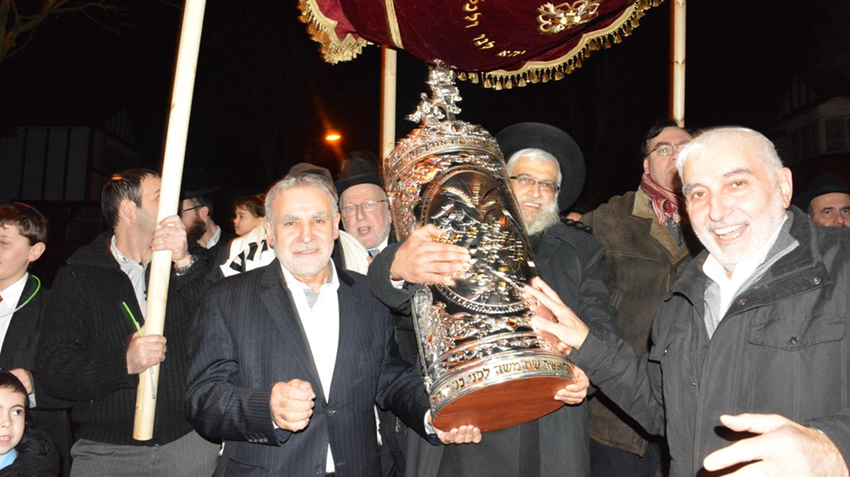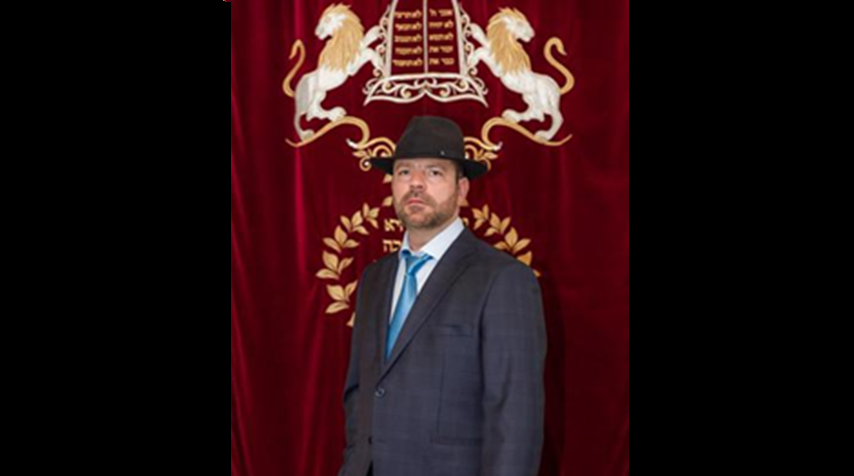This Sunday, the Pedrógão Grande Fire Victims Association (AVIPG) held a ceremony in which it welcomed members of the Jewish community of Porto and the Jewish community of London, in this case family members of Andrew Smiler who was one of the victims of the terrible forest fires of 2017.
The Association (AVIPG) distributed fire survival backpacks to the population. Smiler's name was on the backpacks. These contain first aid, survival and personal hygiene kits. Their aim is to ensure villages are better prepared to cope with natural disasters such as fire, as they wait for the fire fighters to arrive.
Dina Duarte, President of the association, said that "Andrew Smiler, the English Jew, is today a symbol of life and resilience in this land of Portugal. Six years after the tragedy that took more than a hundred lives, our work of distributing survival backpacks to the village communities is due exclusively to Andrew and, of course, to the Jewish Community of Oporto who appreciated him so much and who supports our work with love. Backpacks can really save lives."
Alex Smiler, nephew of Andrew Smiler, was present at the ceremony together with his brother and sister. "It is truly heartwarming to see the positive action that has been prompted by the terrible events of 2017. This is an amazing cause that can positively impact local communities in the future and for the Smiler family, it makes us feel very proud and hugely grateful."
Those presents laid a wreath at the memorial bearing Smiler's name. His story was told by Gabriel Senderowicz, president of the Jewish community of Oporto, to PJN, on June 22nd.
"Halevi was born in England, and pursued a successful career in criminal law, but one day he grew tired of the bar and moved to a remote spot in the Egyptian desert, close to Libya, to write his first novel, Blood of Kings, which became one of the top 10 bestsellers of historical fiction on Amazon.

Halevi’s safety was often in jeopardy. One night, he was attacked by a venomous snake and, amazingly, was saved by a wild cat he had got into the habit of feeding. In gratitude, the writer adopted the animal and his mate, who became his companions forever.
After the Egyptian Revolution the new authorities suspected that this English writer was in fact Jewish and therefore a spy. His visa was revoked and he was given only a few days to leave the country together with the cats he had befriended in the desert.
Halevi then decided to move into a rural mountain abode in a small town in Portugal, which offered the climate and the inspiration that were ideal to continue immersed in his work. He was not to know that in the future Oliveira do Hospital would be the scene of a natural catastrophe that took the lives of more than half a hundred people, including himself.
For more than two years, Halevi had been writing hard in the small basement of his home. He corresponded all over the world via the very weak local internet and the small local post office. He wrote texts of great quality that he shared, bit by bit, with friends, and at the same time he did everything to make his cats adapt to his new homeland.
He feared not for his own health, but for that of his animals who had radically changed their natural habitat and food. Their contact with the surrounding population could kill the cats through diseases to which they were not immune. Besides, there was always the possibility that a hunter would kill them.

On Sunday, 15 October 2017, Halevi's family heard the news about the terrible forest fires spreading through central Portugal, but he informed his mother that the Portuguese authorities said everything was under control, so he need not flee immediately. The disaster that occurred in June with 66 dead had alerted the State and it was not believable that something similar would happen again.
Halevi’s body was found days later near his house. The great Jewish jurist, writer and thinker who found shelter in Portugal was clutching the carriers he used for his cats, who tragically also perished."


































